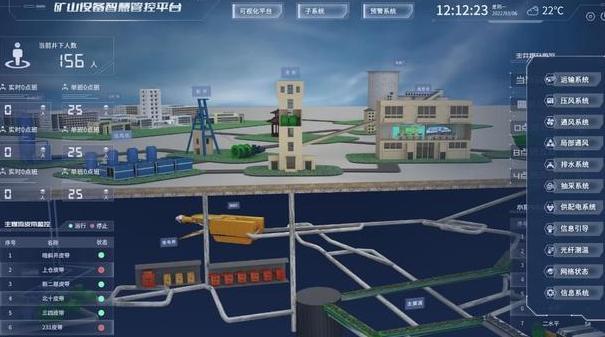Ministry of Industry and Information Technology: Focus on promoting energy conservation, carbon reduction, pollution reduction, and digital intelligent transformation in the non-ferrous metal industry
Category: Industry News
2024-10-30
On September 20th, the General Office of the Ministry of Industry and Information Technology issued the "Notice on the Guidelines for Equipment Renewal and Technological Transformation in Key Industrial Industries" (hereinafter referred to as the "Notice").
The Notice shows that the goal of equipment renewal in the non-ferrous metal industry is to focus on promoting energy conservation, carbon reduction, pollution reduction, and digital intelligent transformation, promoting green and efficient equipment for mining, smelting, and material processing, and promoting the application of online detection devices, advanced process control, and intelligent equipment for key processes such as mining, grinding, smelting, electrolysis, extrusion, forging, and rolling. By 2027, we strive to achieve a 5% reduction in carbon emissions per ton of electrolytic aluminum, save 200kWh of electricity, phase out pre baked anode aluminum electrolytic cells below 200kA, and achieve energy efficiency benchmark levels for over 35% of electrolytic aluminum production capacity and over 55% of copper, lead, and zinc smelting capacity. All production capacity below the energy efficiency benchmark level will be phased out, significantly reducing emissions of pollutants such as sulfur dioxide and nitrogen oxides. The CNC rate of key processes in non-ferrous metal enterprises above designated size will reach over 75%, and the ability to independently guarantee equipment and the level of digital intelligent application will be significantly improved. For those involving changes in electrolytic aluminum smelting equipment and production capacity, relevant policies on capacity replacement must be implemented in accordance with regulations first.

The key directions for equipment renewal and technological transformation in the non-ferrous metal industry mainly include five aspects: mining equipment, smelting equipment, processing equipment, industrial operating systems, and industrial software.
The main equipment in the mining field is green, efficient and energy-saving equipment, with a focus on promoting the transformation and upgrading of new energy mining trucks/excavators, loaders, electric locomotives, ventilation equipment, waste heat utilization equipment, solid waste disposal and high-efficiency sewage treatment equipment. In terms of safety equipment, we will focus on promoting the renovation and upgrading of safety monitoring equipment such as mine ground pressure, slope dumping sites, tailings ponds, and the environment, as well as equipment such as mechanized loading, high-precision positioning of personnel and equipment, production scheduling, dual prevention, and AI intelligent recognition. In terms of intelligent devices, we will focus on promoting the transformation and upgrading of intelligent equipment such as inspection robots, large-scale crushing/grinding/flotation/magnetic separation equipment, intelligent sorting equipment, online detection and analysis equipment, remote control and intelligent operation systems for mining equipment, unmanned and centralized control systems for fixed facilities, production control platforms, and high bandwidth communication network systems for mines.
The main equipment in the smelting field is green, efficient, and energy-saving equipment. The focus is on promoting the high-efficiency transformation of alumina roasting furnaces, aluminum electrolysis rectifier units, aluminum electrolysis graphitization cathodes, new stable current insulation aluminum electrolysis tank technology equipment, continuous copper matte blowing, direct reduction of liquid high lead slag, green and efficient zinc smelting, vertical magnesium smelting reduction, large-scale silicon smelting ore furnaces (with supporting waste heat utilization devices), environmental protection upgrades of copper smelting PS converters, and lead zinc ISP smelting equipment transformation and upgrades. In terms of intelligent devices, we will focus on promoting the renovation and upgrading of equipment such as online detection devices, intelligent overhead cranes, automatic peeling machines, intelligent sorting equipment, intelligent transportation equipment, intelligent warehousing equipment, metallurgical process operation robots, electrolytic cell short-circuit intelligent detection devices, unmanned inspection and unmanned operation. In terms of comprehensive utilization equipment for resources, we will focus on promoting the transformation and upgrading of industrial solid waste comprehensive utilization equipment such as red mud comprehensive utilization, zinc wet smelting leaching slag, aluminum electrolysis overhaul slag, and aluminum ash, complete sets of equipment for dismantling, crushing, and fine sorting, low burn and low-energy consumption furnaces, and complete sets of equipment for recycling and utilizing recycled metal resources.
The main equipment in the processing field is green, efficient, and energy-saving equipment. The focus is on promoting the renovation and upgrading of energy-saving and efficient waste gas treatment equipment, energy supply equipment, dust removal and smoke purification equipment, waste heat recovery and utilization equipment, vertical semi continuous hydraulic internal pouring casting machines, hydraulic tilting casting furnaces, and other equipment. In terms of high-end equipment, we will focus on promoting the application of large-scale extruders, high-precision rolling mills, precision wire drawing machines and other equipment, upgrading and transforming imported high-end rolling mill electrical control systems, and accelerating the transformation and upgrading of new generation mass spectrometers, high stability spectrometers, non-destructive testing equipment, online thickness gauges and other inspection and testing equipment. In terms of intelligent equipment, we will focus on promoting the transformation and upgrading of AGV transport vehicles, intelligent overhead cranes, intelligent elevated warehouses, automatic feeding machines, automatic bundling machines, automatic welding devices, as well as automatic feeding machines, intelligent sorting equipment, online packaging and conveying equipment, intelligent warehousing equipment, and other equipment for the processing of recycled raw materials.
The industrial operating system mainly promotes the upgrading of industrial operating system products such as programmable logic controllers (PLCs), distributed control systems (DCS), data acquisition and monitoring control systems (SCADA), embedded software, etc. used in the non-ferrous metal industry in accordance with the principle of "comprehensively promoting the upgrading of mature and usable products, and updating basic usable products one by one".
Industrial software mainly follows the principle of "replacing one batch with a mature batch" to promote the upgrading of research and development design software, production and manufacturing software, business management software, and operation and maintenance service software used in the non-ferrous metal industry. Priority is given to selecting non critical processes and non important application scenarios for upgrading, and opening up to critical processes and core application scenarios, gradually expanding the scope and scale of upgrading.
It is understood that the main policy and standard basis of the "Notice" includes but is not limited to: "Energy Efficiency Benchmark Levels and Benchmark Levels in Key Industrial Areas (2023 Edition)", "Digital Transformation Work Plan for Raw Material Industry (2024-2026)" and the attached industry digital transformation implementation guidelines, "Guidelines for the Construction of Intelligent Factories (Mines) in the Nonferrous Metal Industry (Trial)" and other digital transformation management requirements, industry norms and conditions for copper, aluminum, lead, zinc, magnesium, rare earth and other industries, and self-discipline conventions for silicon, tin and other industries. Energy efficiency standards such as GB 25323-2023 Unit Product Energy Consumption Limits for Nonferrous Heavy Metal Smelting Enterprises, GB 21346-2022 Unit Product Energy Consumption Limits for Electrolytic Aluminum and Aluminum Oxide, GB 21350-2023 Unit Product Energy Consumption Limits for Copper and Copper Alloy Processing Materials, GB 21347-2023 Unit Product Energy Consumption Limits for Industrial Silicon and Magnesium, GB 29448-2022 Unit Product Energy Consumption Limits for Sponge Titanium and Titanium Ingots, safety standards such as "Safety Regulations for Metal and Non Metal Mines" and "Safety Regulations for Tailings Ponds", environmental standards such as "GB 25467-2010 Emission Standards for Copper, Nickel, Cobalt Industry Pollutants" and "GB 25466-2010 Emission Standards for Lead and Zinc Industry Pollutants", and "Digitalization of Nonferrous Metal Industry Digital transformation standards such as the Transition Maturity Model and Evaluation Criteria.




